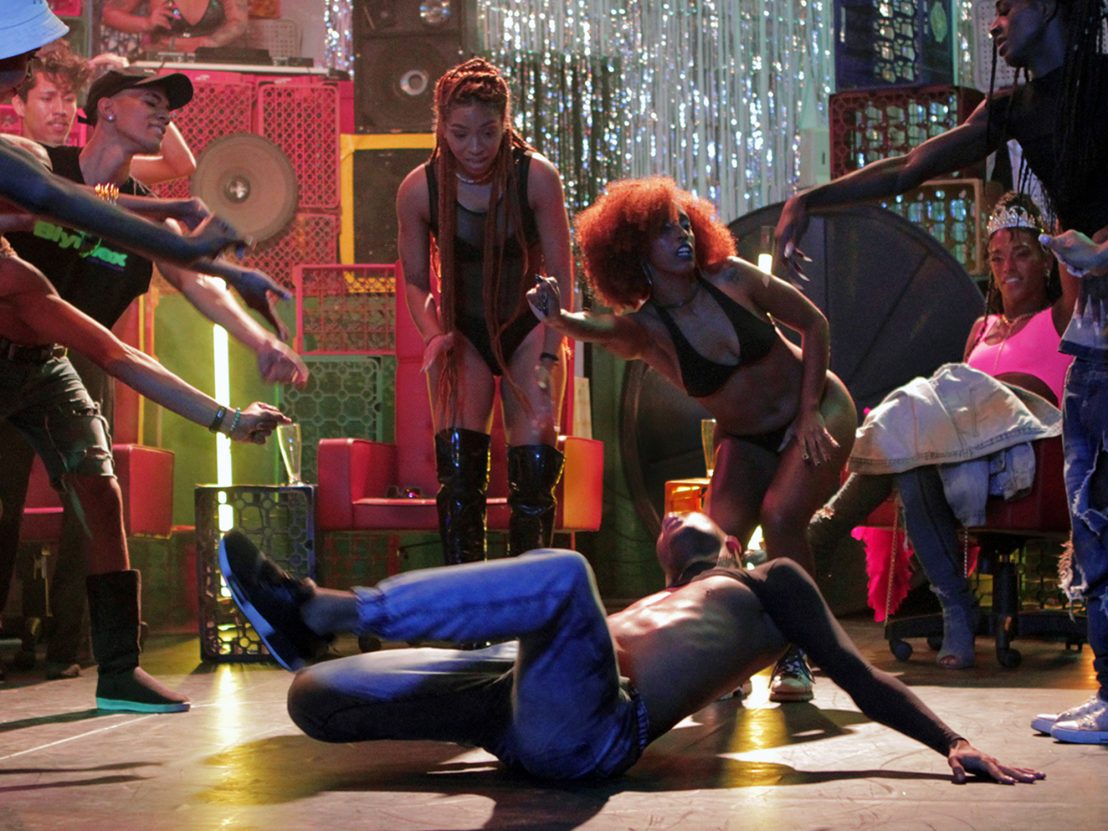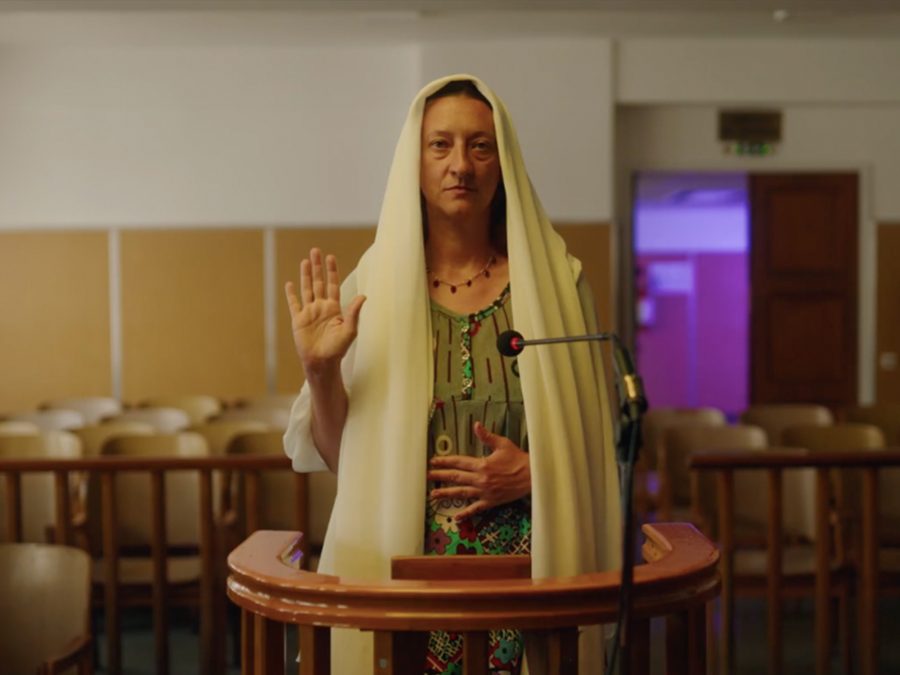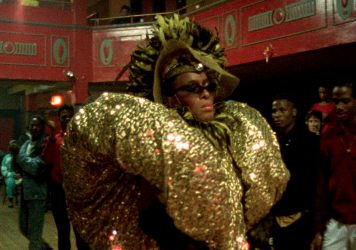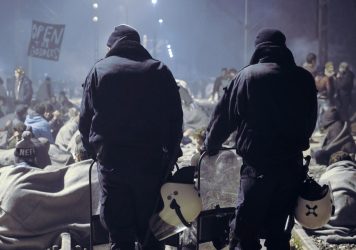
One of the world’s most important documentary festival delivers a host of very fine films as well as some flim-flammy political statements.
Metaphor is a strange thing. Conjoining two realms of meaning in a single phrase holds a promise: through figurative means, one can better understand the world. But what metaphoric expressions often do is obscure the power relations conditioning that very same link, between the public and poetic spheres.
CPH:DOX, one of the largest festivals in Europe and the world with specific focus on documentary cinema, chose to inaugurate its 21st edition with a potent metaphor: Body Politics. Documentary prides itself on a more direct relationship to the real world, a proximity which entails demands such as truth-telling, awareness-raising, and activism.
Knowing this, CPH:DOX artistic director Niklas Engstrom found himself in the metaphorical crossfires for insisting on a division between political work and cultural events. To an article available in Danish where the director stated that “we do not take a position in geopolitical conflicts in which we are not a party,” Film Workers for Palestine addressed a lack of nuance in the festival’s official statements in an open letter posted on March 18th.
While seven films explored the historical Israel-Palestine conflict before it brewed into a full-scale invasion, the most decisive win at this year’s CPH:DOX was No Other Land which received the Audience:Award. At the closing ceremony, audience reactions were composed into a long statement for why the film should win for telling “the most important story right now.”
Contrary to IDFA’s paradoxical stance regarding the invasion and subsequent backtracking, CPH:DOX seemed determined to grapple with brewing tensions, but ultimately ended up advocating for a wider discussion by introducing ‘Conflicted’, a theme tackling geopolitics and territorial disputes. One of the titles united under that label even won the big DOX:Award.

The Flats by Alessandra Celesia is a harrowing portrait of trauma and the undying hope to do better, in the context of the Troubles. Set in Belfast, the documentary chronicles memories of murders and agony in the 1970s and ’80s through survival stories, reenactment, and psychotherapy.
Trauma was also the dormant protagonist in Stray Bodies, seasoned fiction director Elina Psykou’s documentary debut. After a turbulent world premiere in Thessaloniki, the film about Europe’s medical tourism for abortion, IVF, and euthanasia stood strong as a nexus of political and bodily autonomy. What Psykou highlights — in either harsh or stylised manner — is the paradoxical idea of a Free Europe.
Just as some bodies can afford to evade political violence, only very few freedoms — to travel, consume, or work — are guaranteed. In a distressingly upbeat sequence where one of the protagonists performs a cover of ‘Papa Don’t Preach,’ Stray Bodies is ready to go all in: to riot, to scream, to fight tooth and nail.
Across the globe in Rio de Janeiro, filmmakers Juru and Vitã present ball culture as a sanctuary for queer people who have mastered the art of shade. This is Ballroom does what Jenny Livingston’s Paris is Burning never managed to achieve: presenting a throbbingly realistic depiction of House LaBeija’s legacy during an actual ball organised specifically for the film.
Brazil’s safe harbours are many and much needed. Rachel Daisy Ellis’s Eros takes Brazilian motel suites as the point of departure to investigate what intimacy is. In Brazil, motels are associated with infidelity and prostitution, but actually, the majority of people use them as a safe meeting point and often consummate their relationship between those four walls for years.
Ellis insisted on building a participatory relationship with the couples, whom she never met in person. They could film themselves with their own phones, which gave Eros its fluid, sometimes precarious aesthetics. According to the director, having that flux “affects the way we view images of intimacy and their translation of it.”
Gay, trans, and religious couples visit the same motel and the rooms become a stage for each of them, in a way. Sex workers, new lovers, and stood-up singles film themselves before, during, and after sex as their conversations drift off into abstract realms, their bodies disentwining one limb at a time.

In her “unspectacularised” look at sex and intimacy, Ellis locates “the need and desire [of these people] to be seen and heard, and also to say things that are politically important for them.” Tore Hallas’s short film You Are Closer to God When You Don’t Indulge pays close attention to fat bodies in tableau-vivant renditions of sexual acts, de-eroticising the scene in one sense, and further affirming queer sexuality regardless of shapes and sizes. A voiceover narrates academic journal findings about fatphobia and workplace biases, sternly and resolutely over those breathing, entangled bodies immobile in their sexual unity.
However, cinema does not necessarily require bodies to explore the margins of normativity. The experimental film My Want of You Partakes of Me by Sasha Litvintseva and Beny Wagner (NEW:VISION special mention) abstracts the idea of shared authorship through a metaphor that takes on a life of its own. By participating in medical research, the filmmakers gain access to what’s hidden: their bodily interiors. MRI scans of their two bodies expose what they arе made of, literally making cinema out of the parts of themselves that they never get to see otherwise.
The nonhuman camera in another title, The Stimming Pool, co-created by the Neurocultures Collective (a group of autistic directors) and Steven Eastwood, reimagines the film world as a neurodiverse space. A drifting, hybrid form captured by an ‘autistic’ camera disrupts the normative concept of life, experienced by neurotypicals. Seeking respite from a hostile environment of stimuli, The Stimming Pool features a cast of autistic actors and non-actors, and is shot captivatingly on Super 16mm by Aftersun’s cinematographer Greg Oke.

Testing the limits of bodies and their roles as pieces on a political chessboard is a fair ask of documentary and CPH:DOX shone a light on many contradictions that inform our being in the world. Its documentaries—experimental, investigative, hybrid—interrogated the many biases responsible for the idea of a ‘normal’ or ‘ordinary’ body, against which the festival selection highlighted themes of autonomy (sought) and violations (endured). While the films zoomed in the micro- and out to the macro-scale, CPH:DOX showed its commitment to real-world change by opening an equal access pop-up cinema for the duration of the festival.
Between the self-framing of the festival as “a platform for depictions of reality rather than to solve conflicts”, according to Engstrom’s speech during the award ceremony, the daily vigils at Kunsthal Charlottenborg, and the juries’ calls for immediate ceasefire, CPH:DOX played it safe. With its selection, the festival promotes democratic values such as dialogue and diversity, so its stance is not exactly neutral.
But can the body ever be solely a metaphor? Feminist and postcolonial thought position bodies and politics of equal importance, but there is something deceitfully neat in the concept of ‘body politics’. Whose bodies? It is always the oppressed, marginalised, bodies deemed ‘disposable’ enough to be a battleground. As empowering as it may seem, politicising the body in such metaphors can also have the opposite effect, to further compromise the bodies that are already under attack.
CPH:DOX 2024 ran from 13 to 24 March
Published 16 Apr 2024

By Rahul Patel
Jennie Livingston’s seminal portrait of New York’s ballroom culture still resonates throughout the queer community.

A raft of innovative and thoughtful world premieres stood out at Copenhagen's annual documentary festival, which moves from autumn to spring.

Ai Weiwei’s latest chronicle of the refugee crisis was among the highlight’s of Copenhagen’s premier documentary festival.